A majority of our resident animals cannot be released due to a variety of reasons, so you will see them in permanent habitats and learn their rescue stories. You’ll also see a number of animals receiving daily medical care or undergoing rehabilitation in our working animal hospital.
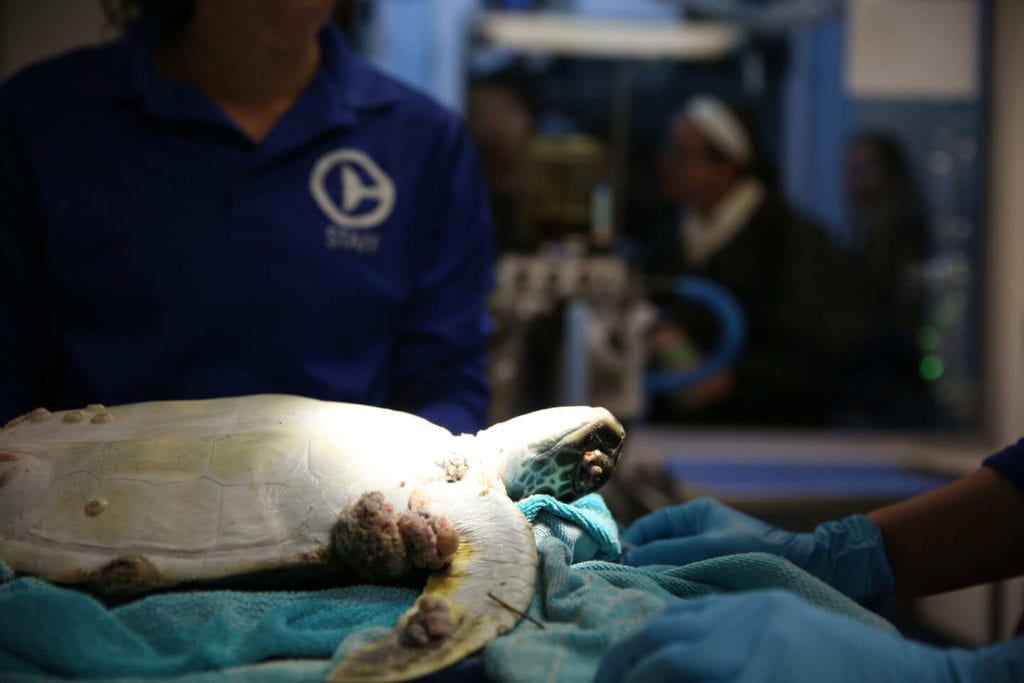
Clearwater Marine Aquarium is a Working Animal Hospital
You’ll see a number of rescued animals currently undergoing rehabilitation in our marine animal hospital. A majority of these animals are sea turtles. They may be suffering from various issues, including buoyancy disorders, cold stun symptoms, fibropapilloma tumors and boat strike or entanglement injuries. Our permanent resident animals also routinely receive medical care and treatments from the animal hospital. We have a full-time Vet and Vet Tech to assist all of our animal care teams.
Our sea turtle rehab center is one of only six facilities in Florida that treat sea turtles with the fibropapilloma virus in our ICU. This virus causes the growth of tumors that can be removed surgically with variable success for regrowth.
Learn more about our current animal hospital patients below, and see them in our surgical suite or ICU hallway on your next visit.
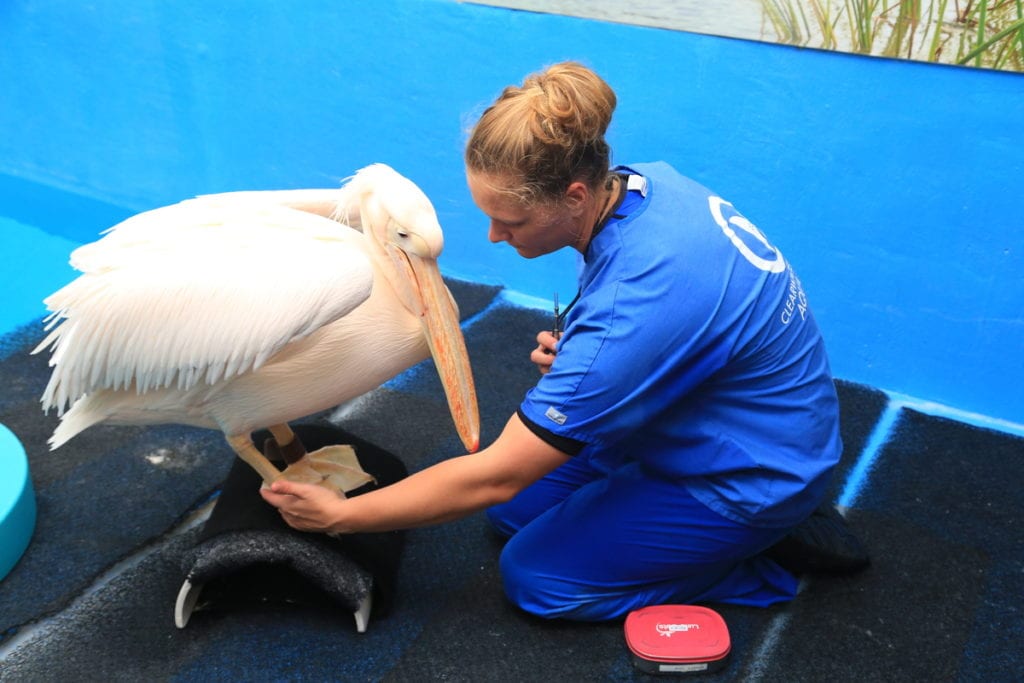
Caring For Resident Animals
Sometimes the injuries are so severe, or the animal is so young, that it would not be in the animal’s best interest to release it back into the wild. CMA works with agencies such as National Marine Fisheries and Florida Fish and Wildlife Conservation Commission to make these decisions. If the animal is unable to be released back into the wild, it becomes a permanent member of the CMA family, and lives here to serve as an ambassador for its species to help us promote environmental conservation.
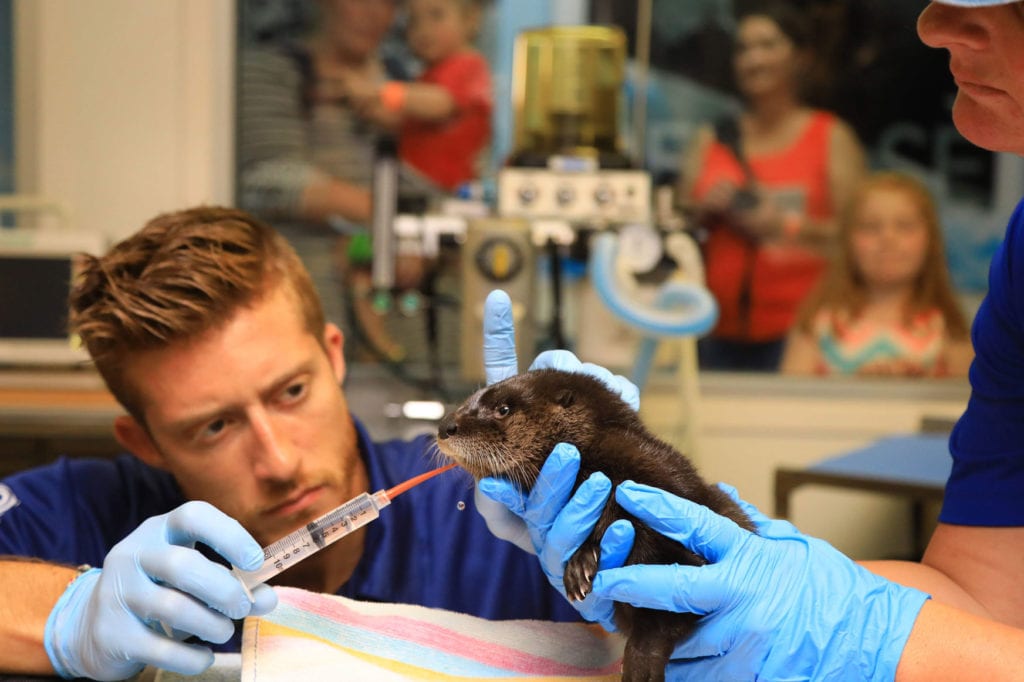
Veterinary Medicine at CMA
Clearwater Marine Aquarium is a working animal hospital.
You’ll see a number of rescued animals currently undergoing rehabilitation in our marine animal hospital. A majority of these animals are sea turtles. They may be suffering from various issues, including buoyancy disorders, cold stun symptoms, fibropapilloma tumors and boat strike or entanglement injuries. Our permanent resident animals also routinely receive medical care and treatments from the animal hospital. We have a full-time Vet and Vet Tech to assist all of our animal care teams.
Support Our Animal Care Fund
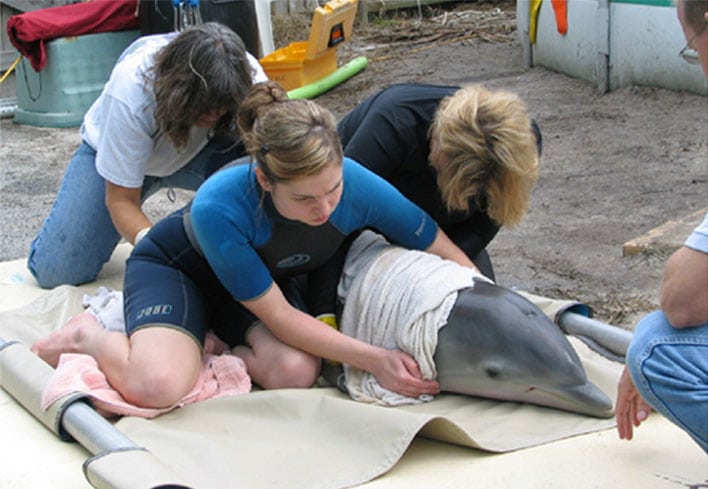
Winter’s Survival Story
Winter the Dolphin was found stranded in Mosquito Lagoon, near Cape Canaveral, Florida when she was only two months old, entangled in a crab trap line which cut off circulation to her tail flukes. After disentanglement, she was transported to Clearwater Marine Aquarium for treatment of her extensive injuries. However, despite exhaustive efforts to promote healing, her tail deteriorated and could not be saved. Her story is unusual – most dolphins trapped in monofilament and crab trap lines do not survive. Despite overwhelming odds against survival, Winter’s energy and ability to adapt to her new physical form surpassed expectations. She recovered completely, adapted to a new swim pattern and learned to eat fish on her own… about 12 pounds a day!
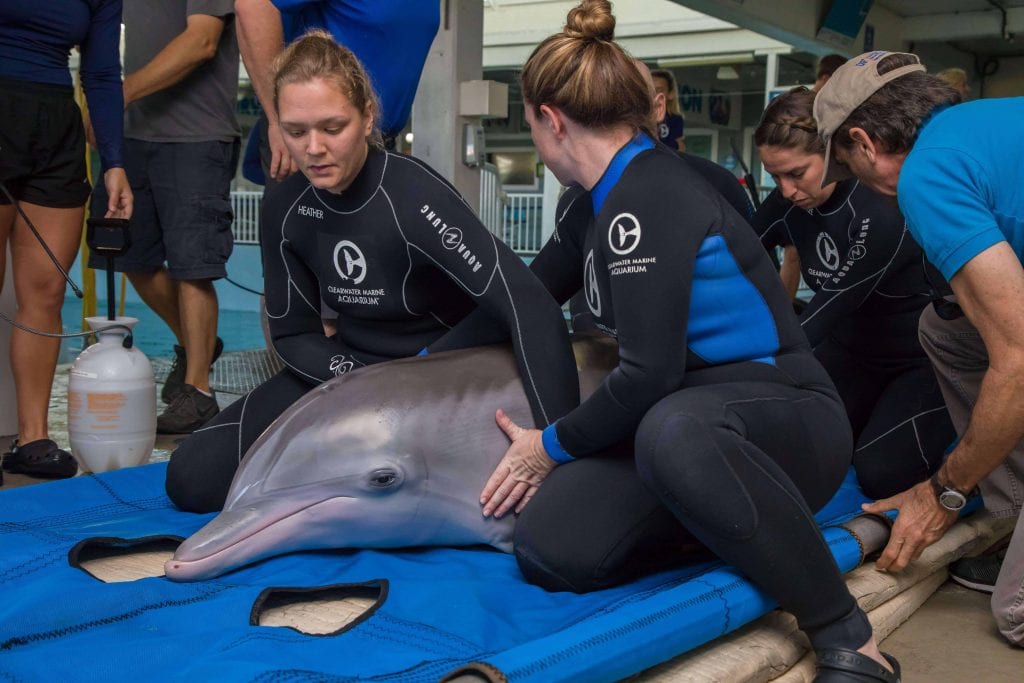
Lasting Lesson to Protect Marine Life
Winter’s case was one of the most difficult for CMA. Her story is a bittersweet realization of the dangers faced by animals as a result of human activities in the wild, such as fishery interactions. Through these types of interactions, dolphins and other marine life often become susceptible to entanglement and ingestion of fishing line or other gear that can cause them to become injured, ill or potentially lead to their death. In order to mitigate these impacts and conserve these species, it is critical for us to do our part and keep our oceans clean and recycle and promote laws and regulations that improve upon fishing practices. Together, we can make a difference!
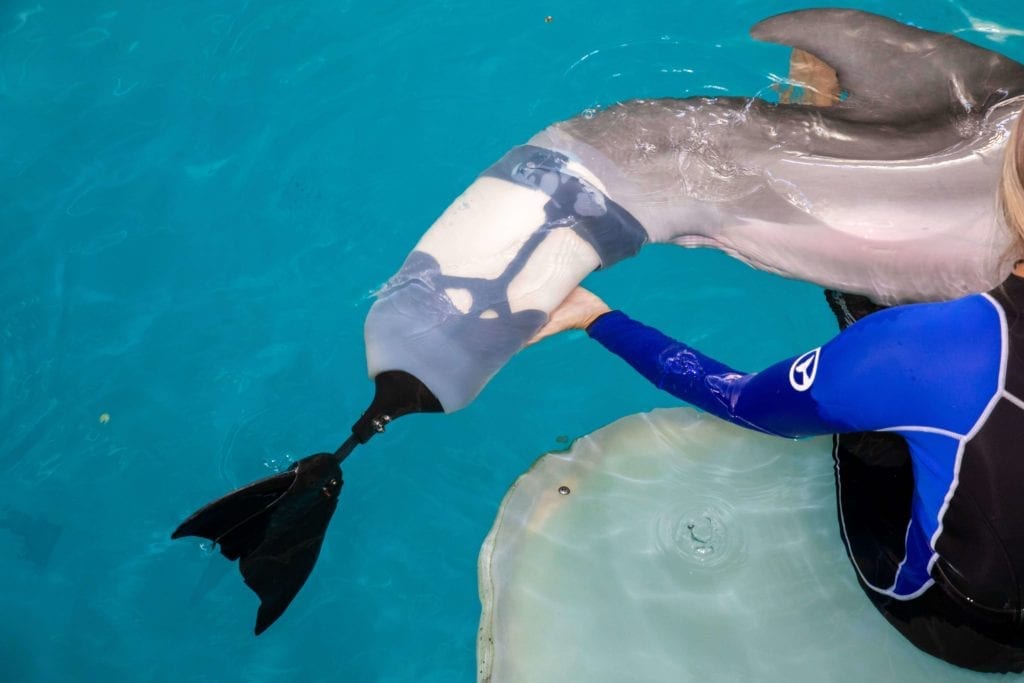
Winter’s Tail Technology
Hanger Prosthetics and Orthotics, Inc., together with Dr. Mike Walsh and CMA’s world-class Animal Care Team, created a unique plan to attach a prosthetic tail to Winter.
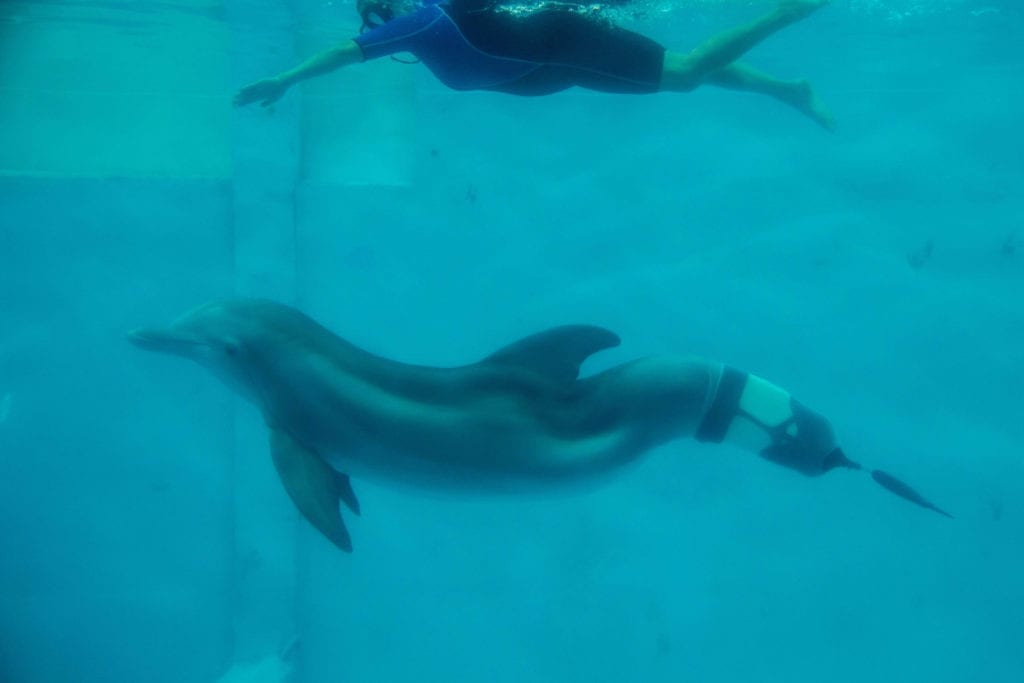
Winter was missing her entire tail fluke and joint. Tail flukes are the powerhouse of the dolphin and are attached to the peduncle, the muscular part of the dolphin. To swim naturally, a dolphin moves the peduncle up and down and the tail flukes propel the dolphin forward.
Making Waves
- 1600+ rescued sea turtles since 2010
- 2100+ Nests monitored since 2010
- 850+ Animals released since 2010
- 190K Volunteer Hours 2020-2021

